Turn Off the Red Lights, Turn on the Bright Lights (República Dominicana)
Can Sex Tourism Be Regulated in Paradise?
The popular Umbrella Street in Puerto Plata, 2023
The patron is quick to show me pictures of a young lady he met in Medellín, Colombia. Images of a partly nude woman in various poses are on each of the slides. Feeling a kinship because we are both black, he starts to tell me about the Afro Caribbean history he has learned during his travels.
Tuning him out, I pay closer attention to the group of men around me of various ethnicities, races, and nationalities. They are drinking cheap beer as the outdoor area fills with cigarette smoke. Plastic tiki torches, roped tube lights, along with a flat-screen TV, are the lighting for the evening. Some of these men had just arrived in Sosúa for the weekend, while others are retired and living out their lives collecting pension or disability checks as expats in a long-term room or apartment, depending on their budget.
A much older man enters the bar with a much younger woman. From the response of the bartender, she has been here before—Haitian. She speaks in Kreyol and takes the keys as she guides her elderly client to a room.
Late Night Drinking in Sosúa, 2023
Turn Off the Red Light
Situated in the northern province of Puerto Plata, Sosúa and its neighboring city of Puerto Plata are tourist destinations for contrasting travelers. Puerto Plata is a major port that receives a large number of cruise ships and families on a brief stop. In contrast, Sosúa is a sex tourism destination.
To be clear, prostitution is legal in the Dominican Republic. Due to this distinction, many women flock to the beaches, clubs, and hotels along the tourist corridors to meet men. The majority of hotels and nightclubs allow these women to spend time there, knowing they will attract men who will buy alcohol and perhaps a meal. Inexpensive, direct flights are offered from major North American destinations that bring men and sometimes couples to the area. Although some people are there to just to have a good time, an obviously high number of people are arriving for sex. So many, in fact, that some locals and stores sell a mixed bag of pills (heart pills and erectile dysfunction pills).
Over the years, the more visible presence of prostitution has caused the tourism board and local business owners to ask for direct action to decrease and hopefully eliminate sex tourism.
“Son, have a seat. I’m going to throw you a bone. First, you have to understand what Sosúa is. This is an open-air market. The girls are here to sell, and you’re here to buy. They travel from all over the islands to get here, some in groups, others solo. Some are regulars, while others are semis coming up for a weekend. Then you have the Haitian beauties who are on constant alert to avoid deportation, especially right now. These girls stay in places where you wouldn’t want to sleep at night. They’re little holes in the wall with minimal sanitation. Just ask me how I know. That said, you hold all the cards. You think these girls want to stand out in that hot sun all day, or offering their wares on the street till midnight just to go back empty-handed to that little sweat box of a hovel? Of course not.” Advice left on message board (2024)
In 2019, the Rescuemos Nuestro Paraiso (Rescue Our Paradise) plan was supposedly implemented by the Office of the Attorney General of the Republic, the Pro Active Committee of Sosúa, the Economic and Social Council, City Council, Ministry of Tourism (Mitur), the Council of Councilors, National Police, Specialized Tourist Security Corps (Cestur) and many more organizations. During my visit, there was no sign of any active measure to mitigate or control prostitution in any way. Regardless, there have been rumblings that the open procurement of sex will become regulated.
This is hinted at in recent posts on the Beachtown Property Real Estate page, which advises on real estate purchases and other investment opportunities. A three-month-old post mentions “registering the ladies of a happy life,” which is an attempt to reduce the numbers by keeping a list of the women who enter the area to work in the sex trade.
Sosúa Museum of Jewish Heritage, 2023
Jewish Enclave to Tourist Destination
Walk down Calle Dr. Alejo Martinez and you will undoubtedly come across a gate with the Star of David. The modest homes inside this space serve as both a synagogue and a museum that exist as the only reminder that Sosúa began as a Jewish enclave.
Arriving in 1940, former Presidente Trujillo agreed to take in up to 100,000 German and Austrian Jews as agreed upon at the 1938 Evian Conference. Ultimately around 800 people arrived, and they used the government’s assistance and transformed what was then a rough stretch of undeveloped land into a thriving community and economy based on farming. To date, there are not many of the initial generation still live on the island. Although their children have taken on various roles in government, including the former mayor of Sosúa, Ilana Neuman. Some own a number of businesses across Puerto Plata, such as the Producto Sosúa food and beverage company.
By 1971, the Tourist Incentive Law was approved to promote the industry and provide tax breaks and import exemptions on items not available on the island. Another benefit of the law aimed to promote new investments.
As the 1980s rolled around, the Dominican Republic quickly became an affordable Caribbean destination due to the devaluation of the Dominican peso vs. a strong U.S. dollar. The period was known as the lost decade, and hit the island with 20% inflation, followed by a 4.5% increase the next year. In 1990, inflation rose by more than 5.5%. By 1992, there was modest economic growth as during this period the real economy grew along with population.
From the mid-1980s to the early 2000s, the tourism industry developed a complex service-based economy, which in 2017 equaled about 9.5% of the GDP. From all-inclusive hotels to boutique hotels, construction began on cruise ports and modern airports, including Punta Cana International. In 2018, the PCI serviced “eight million passengers from some 100 cities in 28 countries, making it the leading airport in Central America and the Caribbean” according to the George Mason University Department of Economic Report by Carrie A. Meyer, 2020. The entire island now has eight international airports and five cruise ship ports.
Source: World Bank Indicators, databank.worldbank.org
As a varied economy that includes agriculture and exports, including electro-medical equipment, unwrought gold, and tobacco products, much of revenue is funneled into the service industries, primarily tourism. Despite the development of tourist, the country is still dealing with poverty and women’s role in Dominican society.
Source: World Bank Indicators, databank.worldbank.org
Main drag in Sosúa, 2023
What’s Your Whatsapp?
A line often used by the women working at the various corners, bars, and restaurants is “what’s your whatsapp?” This opening line sparks conversations that lead to the inevitable negotiation for sex at an agreed-upon place and terms and conditions. These negotiations are based on trust by both parties, unfortunately some girls are swindled out of their share of the payment and some johns get robbed. Neither of these incidents are reported to the local police.
One of the most infuriating facts about the Dominican Republic is that, despite its growth, there is still a high level of poverty and low school enrollment. These two factors affect women greatly since they are more often looked upon to take on traditional roles as mothers and caretakers.
According to the World Bank, “The crux of the problem in economic terms is that productivity has risen, propelling economic growth, but wages have remained relatively stagnant.” When encountering many of the people working the red-light district, I noticed how many of them remarked that they could not find work elsewhere. Another comment was about limited access to education while trying to support a family that included multiple children and parents. When asking about these children’s fathers, I often received the reply, “they are no good.”
The conversation was starkly different when I encountered a young lady who came to Sosúa for experience in a supervisory position. Her immediate goals where to gain experience and move up. When I asked her about the stigma in regard to being a woman in Puerto Plata, she stated that it was only to advance her career and that having a family will wait.
Other young ladies, although not sure as to which career path to take, were happy to find decent employment. This led me to the conclusion that the lack of education and opportunity is a big part of why many of these women ended up working the streets.
“Here you are the guy with the money they’re looking for and a nice, air-conditioned room. They’d rather be there than out on the street or beach. Stay away from online. You’ll pay more and you don’t know exactly what you’re getting. Do you speak Spanish? It doesn’t have to be perfect, just manageable. It’ll help in negotiating. You see a girl you like, just yell out ‘Morena’ and wave her over. When she comes over just lay it down. Give her a compliment, make her feel good, and tell her to come have a drink with you. From there, you can make small talk (name, age, where she’s from, if she has kids, etc.). That’s when you tell her what you want and what you’ll pay. Read that sentence again. Never ask ‘how much? She might counter with another amount. You can dicker a little but have a threshold line. You don’t have to pay those ridiculous prices. Once you’re both on the same page, finish your drink and go to pound town or get her number. It’s that simple. This stuff isn’t hard, so don’t over think it.” Advice left on sex message board (2024)
Another part of the issue involves the number of Haitian immigrants who crossed the border to work exclusively in prostitution. Despite what has been stated by the Beach Town Property website that “90% of the sex workers are Haitians creating this Sosúa Dominican Republic Prostitution Plague that just does not seem to go away,” their presence is due to the stronger economy. When interviewing a young lady who crossed the border with her child and mother, I asked that, if she could get a job and education, would she stop being a prostitute? Her answer was yes, but without paperwork, she didn’t have any other options.
Sosúa Beach, 2023
Una Cerveza Por Favor
There is a different energy at North Coast Brewers established in 2018 as one of the few independent brewers on the island and the only one in Sosúa. It caters to both a younger, educated, middle-class Dominican audience and seasonal visitors who own homes in the area. Both enjoy Spanish and American rock, especially live on stage. The kitchen serves pub standards and a rotating food truck menu.
I caught up with Marco Morales a year after my visit. As a life-long resident and one of the owners/brewers of North Coast he offered a local perspective to the situation. We discussed the current state of Sosúa and what he would like to see happen to develop it.
Thibert: What has changed, if anything, about Sosúa in the past year?
Morales: It’s basically the same.
Thibert: You have lived in Sosúa all of your life. What has changed, in regards to tourism, over your lifetime?
Morales: At one point, Sosúa and the province of Puerto Plata had lots of all-inclusive hotels that brought in lots of family tourism and everything. So, the truth is that things were not happening the way they were supposed to. The area started getting bad press. People were getting food poisoning from the hotels, maybe they were trying to reduce costs, so we lost a little of the quality of the all-inclusive hotels, and, at that point, we started shifting to a different type of tourism in Sosúa.
Thibert: Do you remember about what year this was happening?
Morales: Fifteen to twenty years ago (2009–2004).
Thibert: When did the area shift from family to an increase in prostitution? Was it because of these incidents?
Morales: Prostitution has always has been here. The thing is that it started to become public as the types of tourists changed. A lot of the girls are not from this town. They come from different towns around here, and they come maybe for the weekend or a week, and then they go back home. It’s just started to become public. Word of mouth made it go out of control.
Thibert: What type of women started coming to Sosúa?
Morales: They are basically Dominicans. Some are educated. There have been lots of stories of women who married men they met on the job and they have families now. Some women get wired money every day or month from the men they connect with. Now they have families and kids.
Thibert: I noticed that the brewery is not on the main tourist corridor. It feels like your brewery is secluded but is still a part of the community. Is that a correct interpretation?
Weekday evening crowd at North Coast Brewers, 2023
Morales: We don’t really like things on the main strip of Sosúa. At night, it becomes chaotic. These are not the type of people we want in our brewery, so we decided to put our brewery off the strip in a more cooled down area. We wanted a place for locals who are not looking for that other kind of scene. A place they can stay a while without having to go to Cabarete (next town over) or Puerto Plata.
Thibert: In 2019, a number of organizations in the tourism sector supported the Rescue Our Paradise Plan that was implemented to confront prostitution and pimping and recover the family-oriented tourism that once characterized the community. Did you know about this plan did you witnessed a decrease in prostitution?
Morales: Yes, to both. The thing is, at that moment, around 2019, we were having mayoral elections. The authorities moved the main strip of the prostitution to a red zone out of the heart of Sosúa by almost a kilometer, or about half a mile. Mayor Illana Neumann lost the election as did President Danilo Medina. The current government of the Modern Revolutionary Party lead by President Luis Abinader plans to do something to the Red Zone, such as relocate it. They just haven’t got into it—yet. They came in new, four years ago and were reelected. They haven’t had the moment to change Sosúa. Right now, all their efforts have been on reorganizing Sosúa Beach. It is understood that, after they finish Sosúa beach, they will take care of the other area.
Thibert: What is the reorganization of Sosúa beach?
Morales: The reorganization of Sosúa beach involves an association of local businesses. There are now around 200 shacks, bars, gift shops, and mini-markets all along the beach. The government is putting up two malls and relocating everyone along the beach into these two malls. They want to clean up the whole beach, sidewalks, and bathrooms. They don’t want all of these 200 shacks scattered all around the beach. The plan also leaves opportunities for the landowners behind the beach to build hotels. Right now, they have huts on their land.
Thibert: What does this mean for the women who work the area?
Morales: The government is working on that. These women will be relocated as well. They are going to different places so they can keep doing their business. It will be reorganized. It has to be clean. There are going to be new rules, so that not everyone can continue doing anything they want.
Thibert: It’s good that they said that. So, the plan is that over time, if you are interested in prostitution, there is going to be a designated area for them. There will also be spaces for families to enjoy themselves and not feel pressured into anything. In the end, a zone for everything, everyone. Will everyone be happy?
Morales: Yes, that is basically what we want to get done. In the end, family tourism is more lucrative for the business owners in town. Families come into town and spend money, you know. The prostitutes come in and they don’t spend money. They keep the money and they don’t even live in town. So, that’s what we’re trying to get done.
View from hidden beach in Sosúa, 2023
Thibert: I read the comments on beachtownproperty.com. Just want your feedback on the three of these comments:
Comment No. 1: In that regard, North Coast Deputy Tourism Minister Julio Almonte said the law enforcement agencies are registering the “ladies of happy life” who come to Sosúa to practice their trade. Have you heard or witnessed a registering of prostitutes?
Morales: No, no. None of that. Prostitution here is not legal. So…
Thibert: (interrupting) It’s not legal or is it legal?
Morales: It’s not legal.
Thibert: It is to my understanding that prostitution is legal.
Morales: There have been a few cases of places that are dedicated to full prostitution (brothels). These have been closed down. The authorities cannot go after you personally, and they cannot stop you from doing it. The way it is happening now is that all these girls are on the strip. There is not just one place to go and pay to do something with a girl and you that you are legally paying for. That is illegal. On the strip, someone sees a girl, and they do whatever they want to do. The government wants to regulate the way girls dress in town. They don’t want them going around wearing almost no clothes.
For Clarification: Prostitution is legal in the Dominican Republic, but activities surrounding it are illegal such as having a brothel or being a pimp.
Thibert: Comment No 2: Sosúa is losing hundreds of visitors due to this situation. Is this true?
Morales: Yes, there is already an echo system working around the current state that we are. Many business owners, small Airbnbs, and hotels live off prostitution because people come in and they spend a week here. They rent motorcycles and cars, so obviously when they take this away, it’s just not going to be an easy change. It will be a process. We are losing the quality tourism. We want people who are willing to pay for an upscale apartment. We don’t want someone paying $50–$60 for a room in an apartment.
Thibert: What do you think will happen to the businesses that thrive off of prostitution?
Morales: I think they, in the end, will have to relocate to the designated areas or change the concept of their business. They are obviously going to hit rock bottom before they get better than where they are right now.
Thibert: Comment No. 3: Sources quoted by the outlet say 90% of the sex workers are Haitians creating this Sosúa Dominican Republic Prostitution Plague.
Morales: No. 90% Haitian. Not at all.
Thibert: Tell me about the current mayor of Sosúa, Wilfredo Olivences. What has his stance been on Sosúa?
Morales: I think he has good intentions. He actually changed the town after he got elected in 2020. He cleaned up everything. The thing is that he didn’t continue what the previous mayor, Ilana Neuman, did with the strip. I think there is more to do. I think he will be willing to do it when the government decides to go for it.
Thibert: So, he is waiting for his opportunity?
Morales: I think so. The mayor is also a businessman, and he has a few clubs around town. There is some conflict of interest.
Thibert: Which clubs does he own? Are they the type of clubs that the women of the area frequent?
Morales: You can say so. He used to own on the strip, but now he doesn’t. He owns the after hours inside the casino. There is a curfew during the week. Casino and tourist locations can stay open until 6:00 a.m. in the morning.
Thibert: Has there been any pushback against the proposed changes?
Morales: Yes, there are always people who live off prostitution, to tell you the truth. They kind of understand.
Thibert: Is it a good thing that Sosúa is primarily a tourism- and service-based destination and that it is doubling down on this with new hotels and sites for visitors?
Morales: It is a good thing. That is the type of investment that we do need in town. Other investors get motivated into these types of businesses, such as family tourism. There is a lot going on here. A Hard Rock Café is being built.
Thibert: What other projects have you heard about?
Morales: In Puerto Plata province, there is an area being made into a hotel community. President Abinader came in last week. They broke ground on a Hyatt (Zilara) and a Marriott.
Celebrity Beyond cruise ship awaiting it’s passengers at the Port of Puerto Plata, 2023
Thibert: What do you think the future of Sosúa will be?
Morales: I think we have a gem. Sosúa has everything: nice beaches and a lot of apartment buildings. Real estate is booming. We have come a long way since Day 1.
Thibert: Let’s wrap back around to the brewery? Where do you go from here?
Morales: Keep working on our brand to upgrade our production. Maintain quality. Put out bottled beer. We want to reach out to other cities in the Dominican Republic.
Thibert: So you are saying, one day I am going to see your beer in my supermarket?
Morales: We actually have already started sending it out to supermarkets. We have a pilot project.
Thibert: When can I have some shipped to me in the United States?
Morales: (laughs) Just send me your address.
Future beach front boutique hotel??, 2023
Conclusion
Can Sousa successfully place citywide restrictions on sex tourism? Yes, but not anytime soon because four obstacles are blocking progress.
First, the area does not offer many accommodation options, specifically all-inclusives like those in Punta Cana. The area also does not have many activities for young people. In contrast, Puerto Plata has already designated areas to take selfies and sites of interest to visit. Restaurants, tour buses, accommodations, a fort, and handmade cigars are clustered in a central location.
Second, the plan to create a red-light district is now four years old. One of the main causes of this delay appears to be both the mayoral and Presidential elections which brought about a change in political parties. This brings me to my next point.
Third, I have a few reservations about the conflict of interest that the current mayor, Wilfredo Olivences, may have due to his venues in the area.
Fourth, the internet offers a place for groups such as Passport Bros and YouTubers, Tiktokers, and influencers to provide video guides about where to find sex in the area.
While I was in Sosúa, I saw groups of young men looking for women. In response, a lot of the younger women are wearing less to stand out more among the increasing competition. In the end, this situation will worsen until the community is forced to make it better.
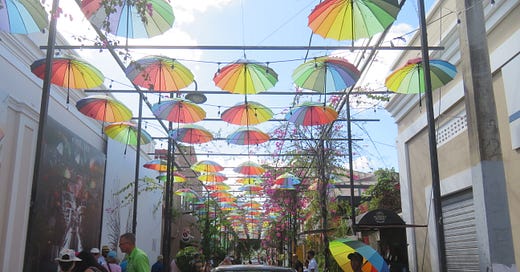



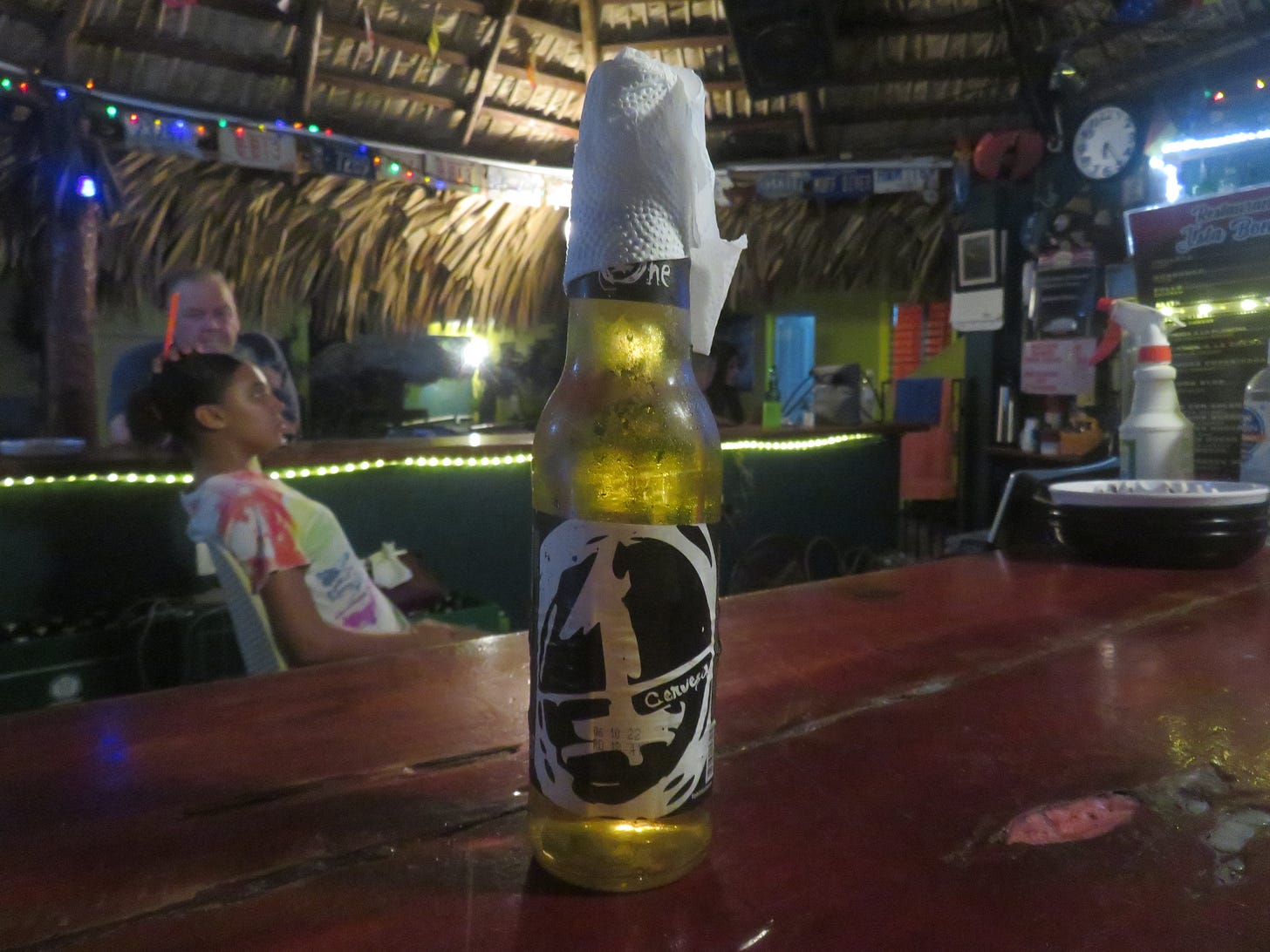
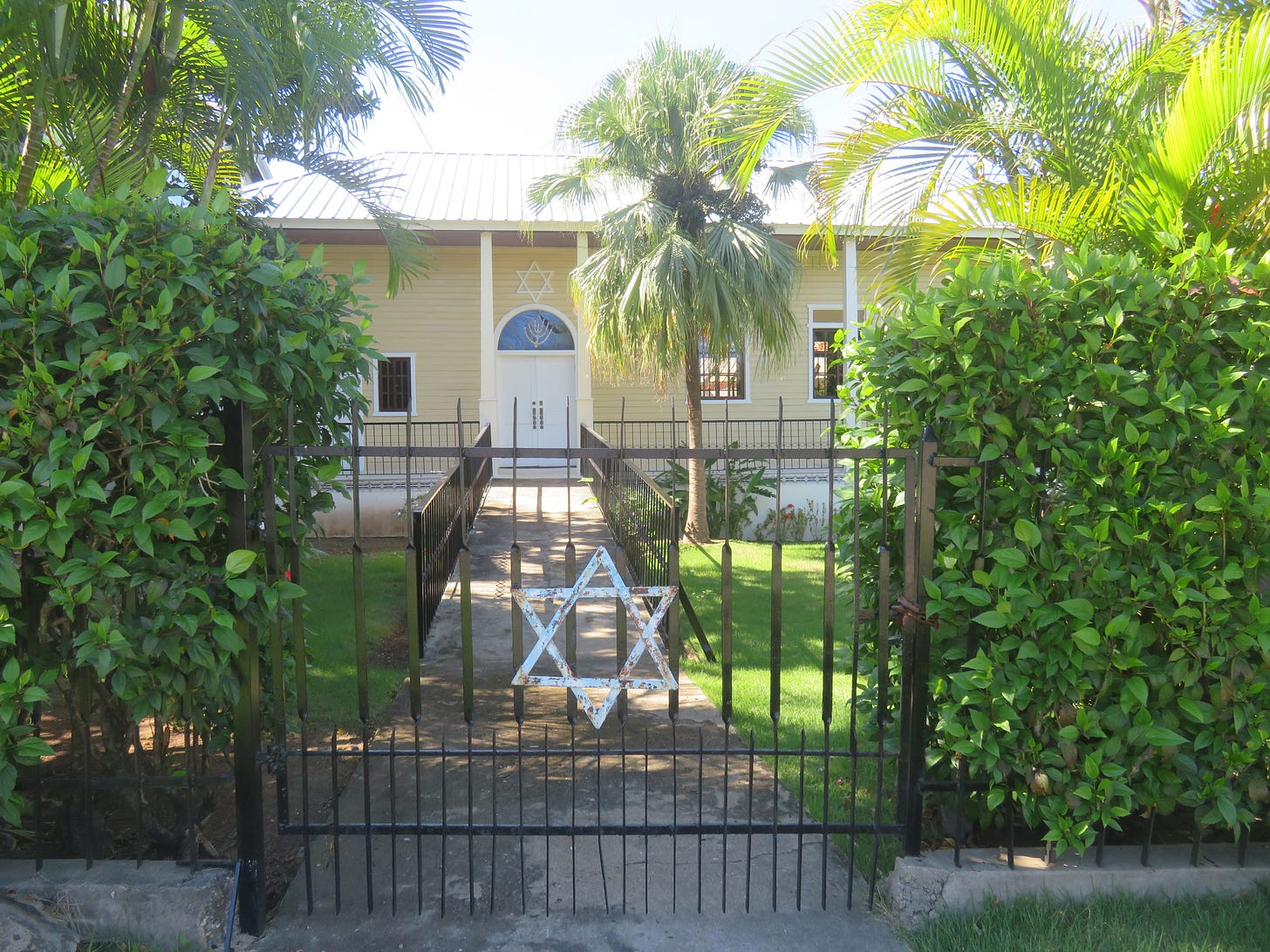
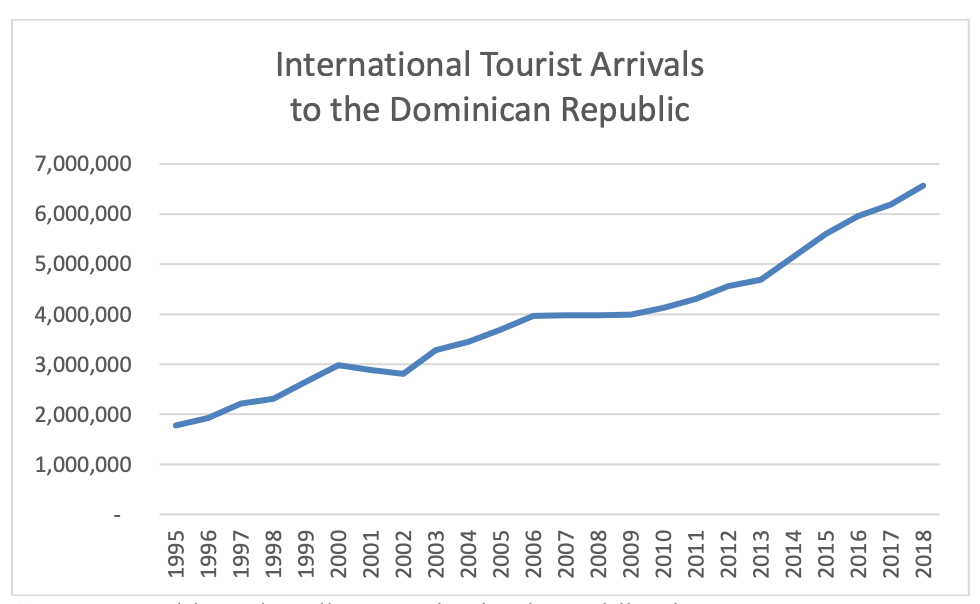
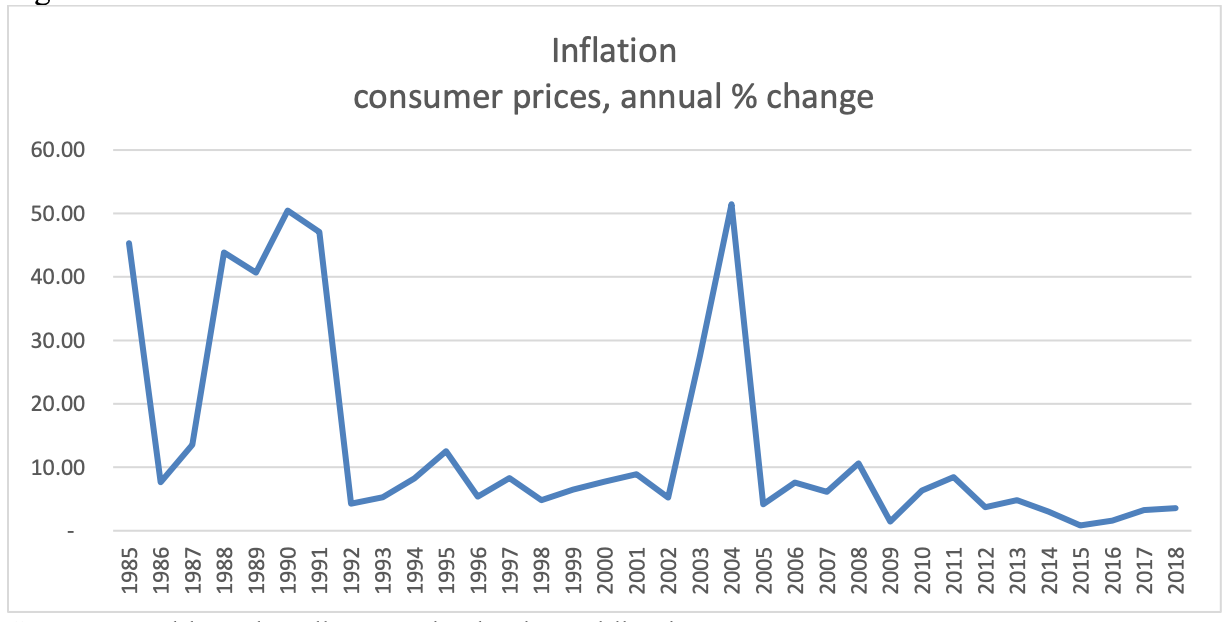
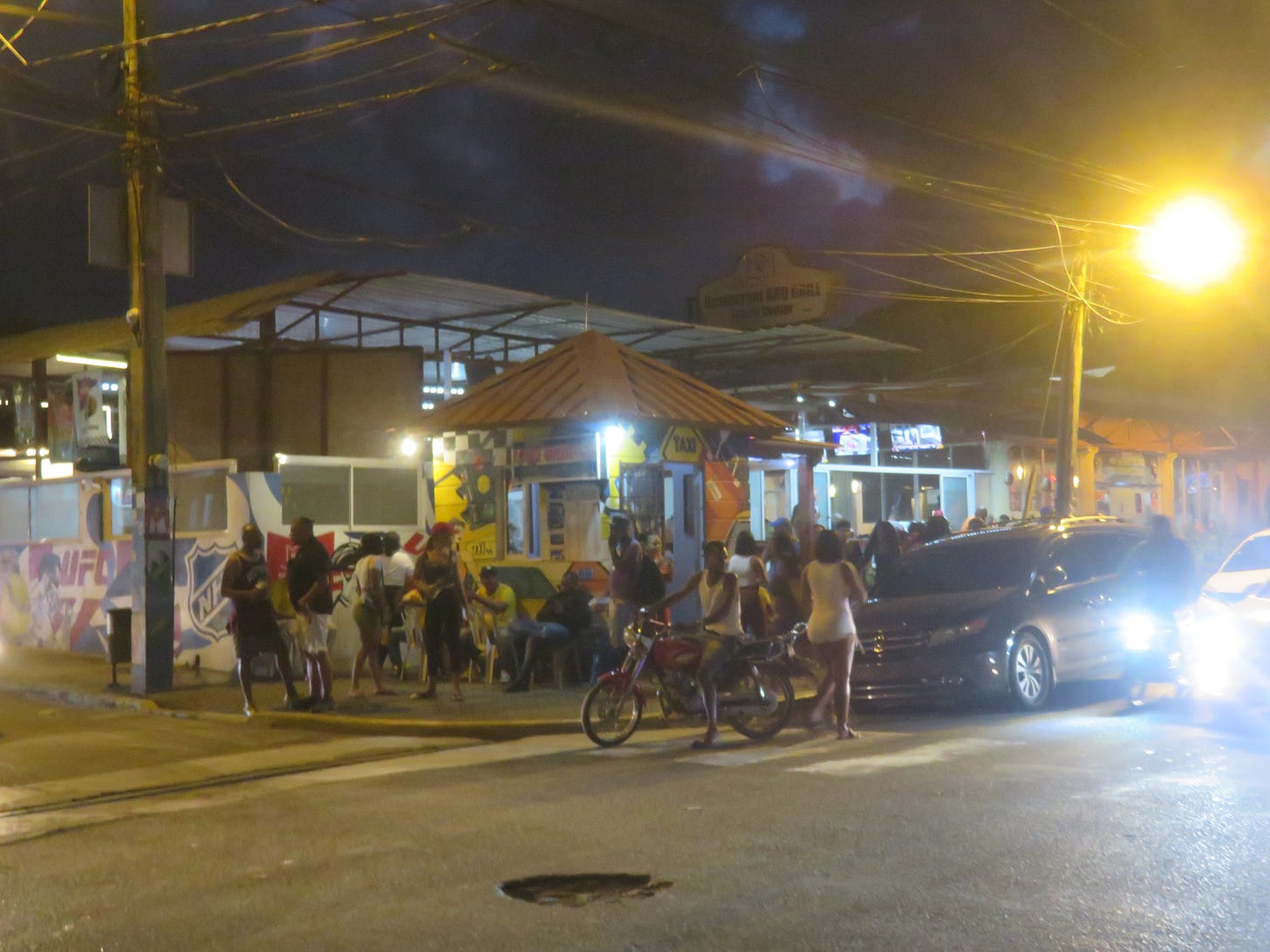
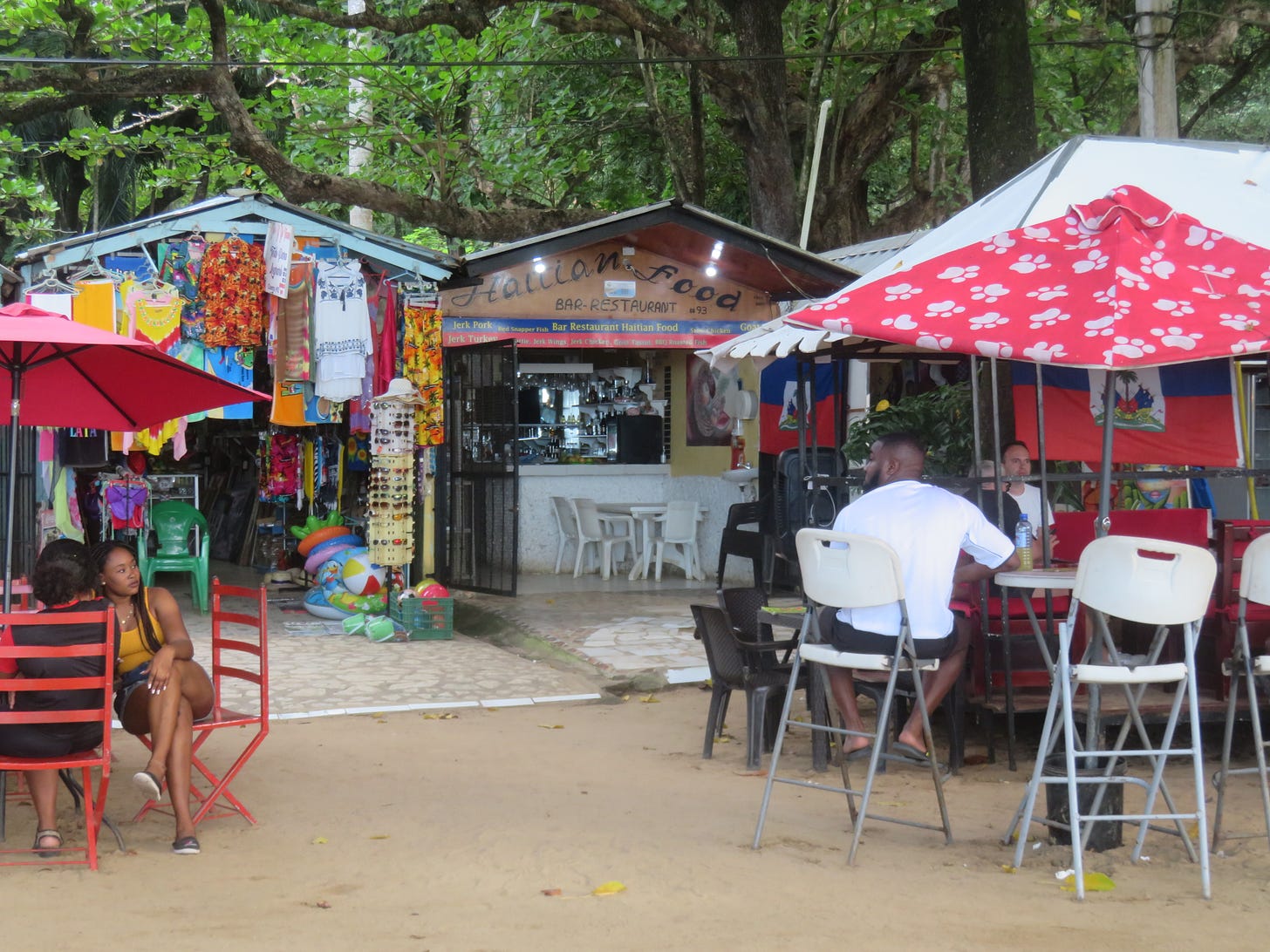
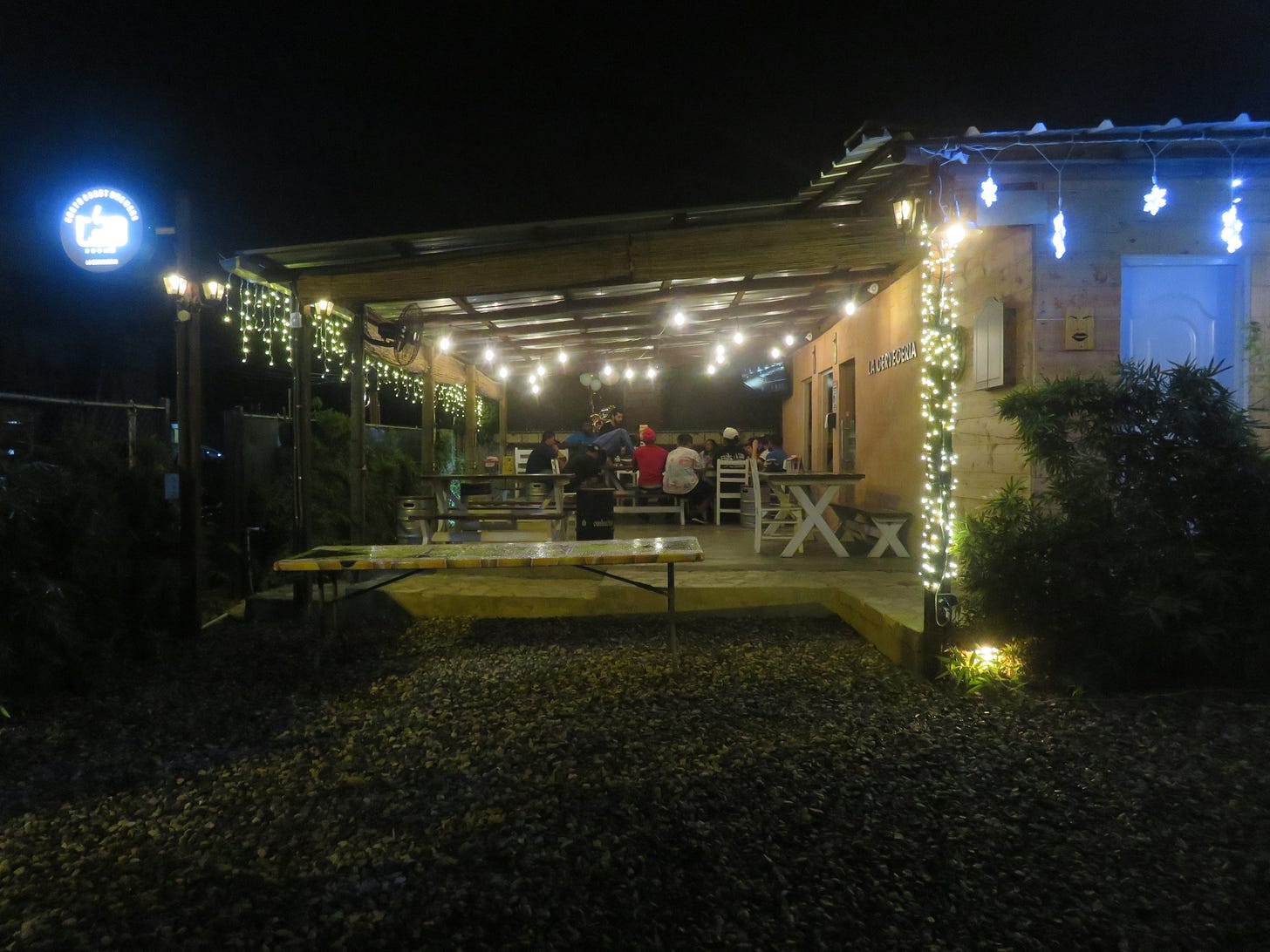
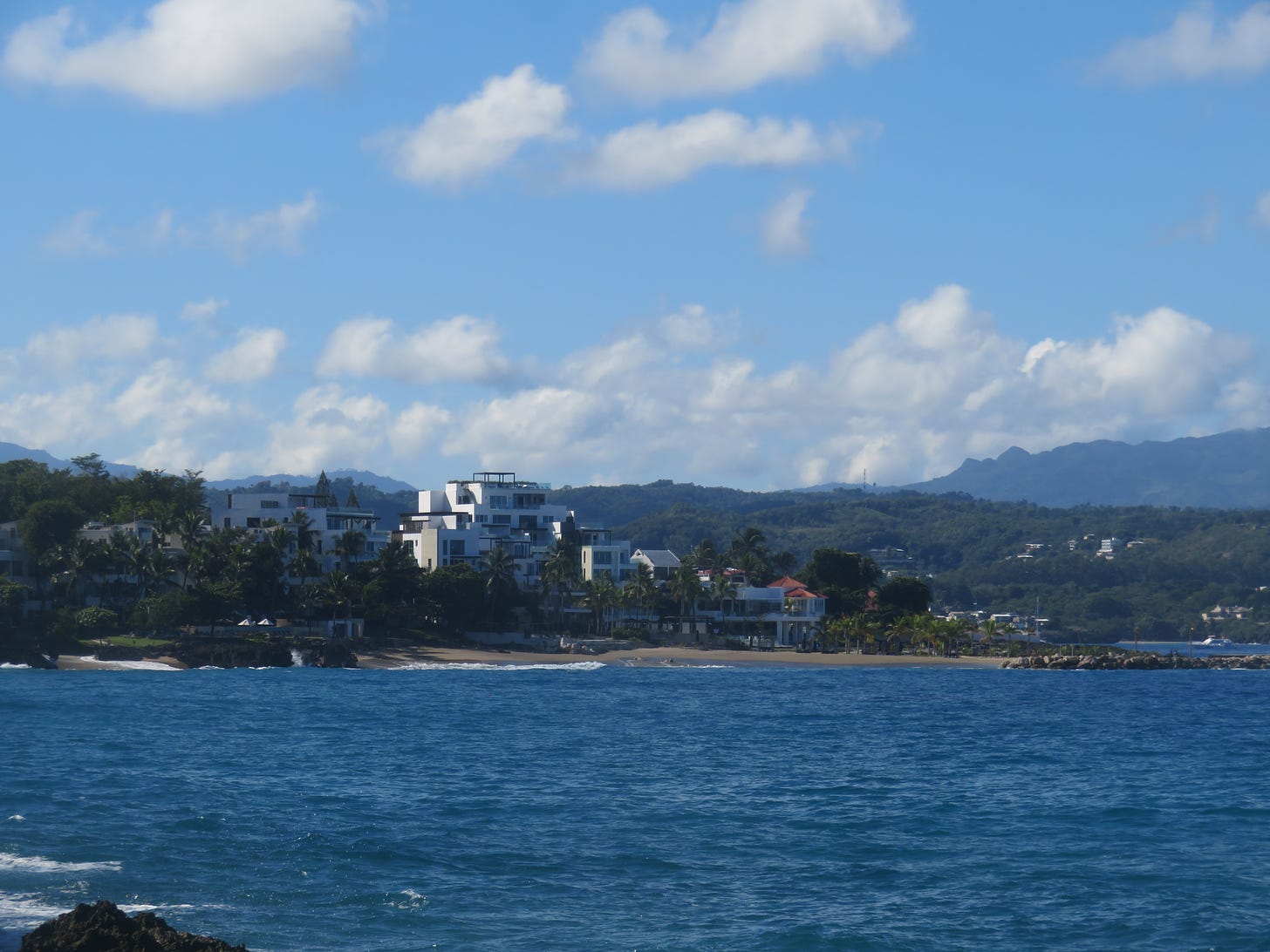
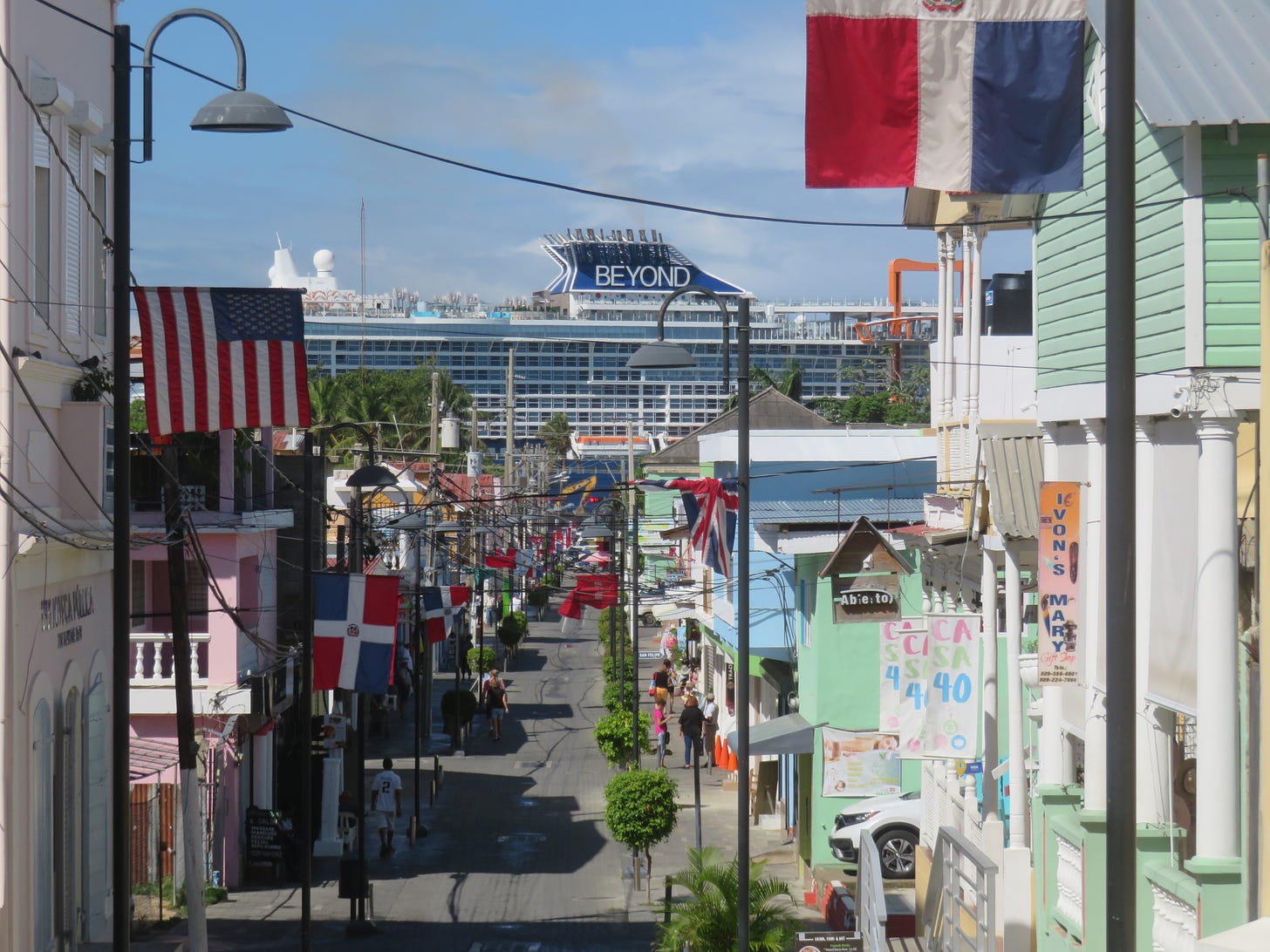
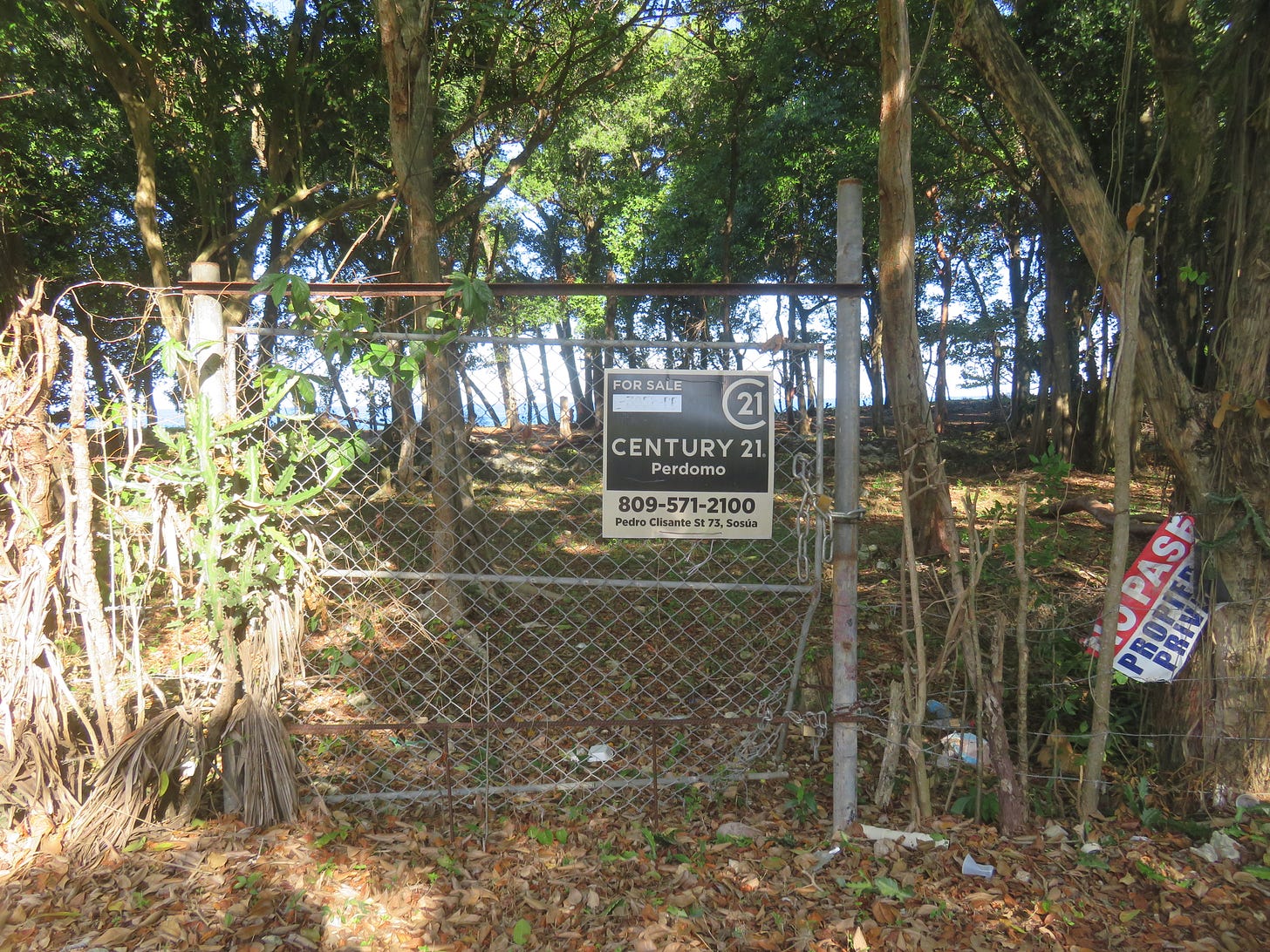
This was such a good read. Thanks for providing a glimpse into a world I didn’t know existed.